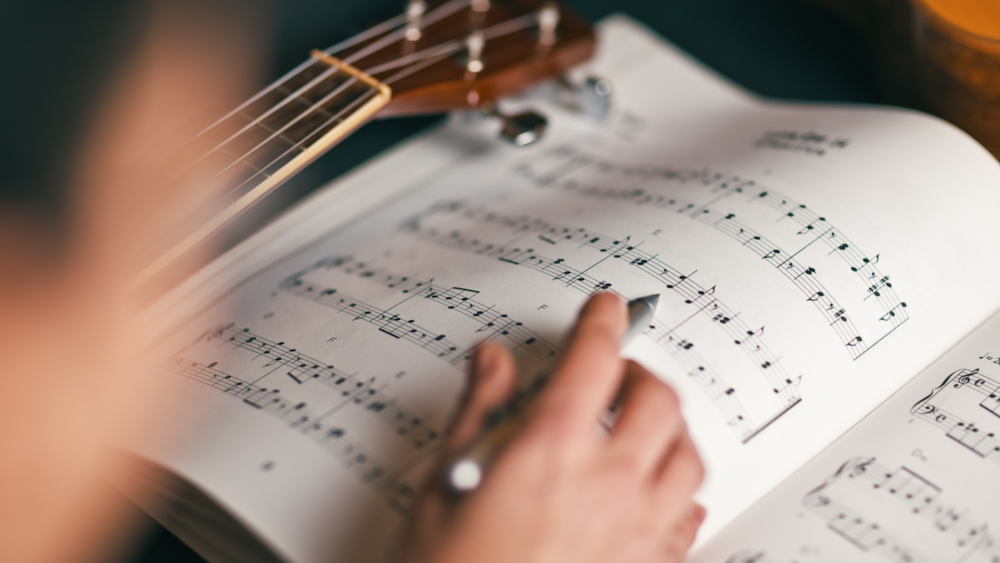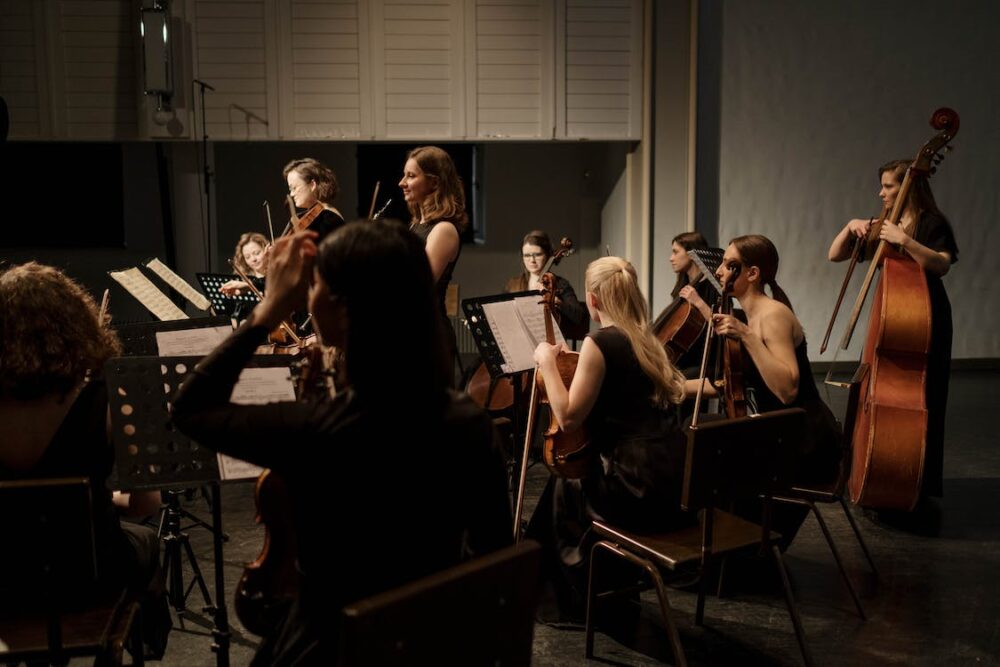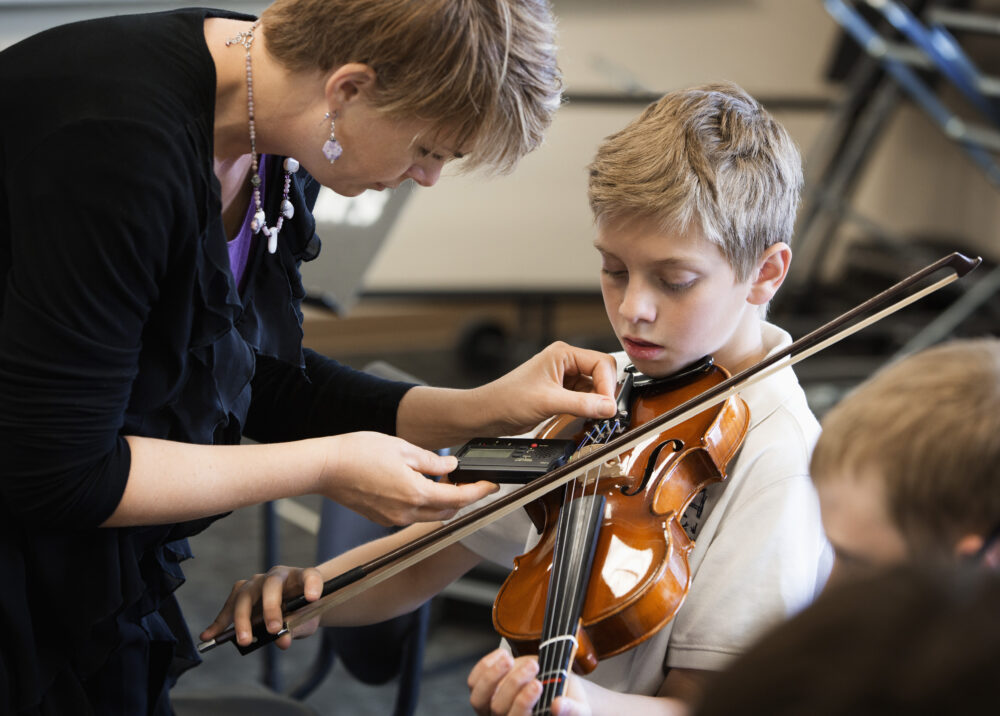Music is an integral part of human culture and history that transcends time and place. From ancient tribal ceremonies to modern-day pop concerts, music has always played an essential role in bringing people together, expressing emotions, and marking significant cultural events. While many enjoy listening to music recreationally for entertainment, studying music formally through instruments, voice, theory, or composition can provide even greater benefits beyond pleasure. Here are some key benefits of studying music:
8. Improves Academic Performance
Numerous studies have demonstrated a strong correlation between music education and academic achievement. Students who study music tend to have higher IQs and test scores in both math and language arts compared to students who do not study music. There are a few key reasons for this:
- Enhanced Cognitive Skills: Learning music involves understanding rhythm, scales, reading notation, and focused listening. Mastering these skills boosts abilities needed for math, reading, writing, and other academic subjects.
- Increased Brain Connectivity: Making music strengthens connections between the left and right hemispheres of the brain. The left brain is more analytical and logical, while the right brain is more creative. Music builds bridges between these two modes of thinking.
- Improved Concentration: To excel at music, you need sustained focus and concentration. These heightened attention skills translate to better focus on academic topics.
7. Boosts Confidence and Responsibility

Source: nolaschoolofmusic.com
As students’ musical skills improve through diligent practice over time, they gain immense pride and confidence in their abilities. For those deeply committed, pursuing a master of music degree can further elevate their confidence, offering advanced training that positions them as experts in their chosen field. Additionally, studying music provides a platform for performing in front of audiences, which helps with;
- Conquers Anxiety: Performing regularly helps students overcome performance anxiety. This transfers to increased confidence in public speaking and other situations outside music.
- Fosters Accountability: Music students become responsible for attending all rehearsals, completing individual home practice, and being fully prepared for each class or performance. This accountability builds maturity.
- Promotes Leadership: More experienced student musicians develop the confidence to serve as role models, mentors, and student leaders. This leadership ability applies across academic and extracurricular activities beyond music.
6. Teaches Teamwork and Cooperation

Source: pexels.com
Group music activities require collaboration, compromise, and teamwork. In bands, orchestras, choirs, chamber groups, and musical theatre, students learn to work together and develop the following essential skills;
- Flexibility: Students adapt their individual parts to fit together musically within the group. This cooperation and compromise are essential for any high-functioning team.
- Develops Listening: Ensemble members must engage in active listening to blend their sounds. This careful listening transfers into a valuable skill for school, work, and life.
- Assists in Creating Community: Music class provides students with a sense of belonging, friendship, and mutual support. Students unite around shared musical passions and goals.
5. Improves Social Skills
In addition to teamwork, music education helps students develop broader social skills. Group lessons, ensembles, and performances all involve structured social interaction with peers and teachers that greatly aid in;
- Fosters Communication: Playing music in groups requires verbal communication to coordinate rehearsals and collaborate on the creative process. Students learn to convey ideas effectively.
- Teaches Nonverbal Cues: Music inherently involves interpreting nonverbal cues like facial expressions, posture, and gestures. Students become adept at reading body language and other visual signals.
- Promotes Conflict Resolution: Working through musical disagreements constructs creative problem-solving and conflict-management abilities.
- Provides Social Experience: Music groups allow safe, structured practice interacting with peers. This experience transfers to building relationships and navigating social situations outside of music.
4. Teaches Perseverance and Discipline

Source: classicfm.com
Studying music instills perseverance, grit, and self-discipline in students. Mastering an instrument requires dedicated practice and overcoming challenges;
- Develops Resilience: Students learn to push through difficult music, performance nerves, and setbacks in their progress. They develop resilience and the ability to bounce back from adversity.
- Promotes Grit: Musical training teaches determination and passion for long-term goals. Students with grit stay motivated despite boredom, fatigue, or plateaus in progress.
- Teaches Time Management: Regular music practice promotes excellent time management skills. Students must balance practice with other activities and responsibilities.
- Builds Self-Discipline: The daily commitment to individual practice teaches self-control, dedication, and habit formation. Students independently manage their musical growth.
3. Enhances Memory and Literacy
Studying music enhances memory, reading comprehension, and verbal skills in several key ways;
- Reading Music: Learning to read musical notes requires connecting visual symbols to auditory phenomena. This process builds neural pathways between the brain’s visual and auditory regions, boosting literacy skills.
- Memorization Techniques: Songs use techniques like rhyme, rhythm, and repetition to aid memorization. Mastering these musical memory tools trains the brain for better memorization in all academic contexts.
- Brain Plasticity: Playing music promotes neuroplasticity – the brain’s ability to reorganize itself. A more malleable brain can more easily adapt to learn new information and skills.
- Auditory Processing: Musical training hones auditory processing, allowing for better differentiation between sounds. This aids reading skills such as phonics.
2. Develops Physical Coordination

Source: eliasonmusic.com
Playing a musical instrument promotes whole-body motor coordination and control. The simultaneous cognitive and physical demands involved in reading, listening to, and playing music strengthen neural connections between the brain and body. This brain-body communication results in the following;
- Enhanced Fine Motor Skills: Playing an instrument requires seamless hand-eye coordination as well as finger and hand dexterity. Mastering the precise movements to produce sound enhances fine motor skills that directly transfer to handwriting, typing, drawing, and other academic activities.
- Improved Gross Motor Skills: Musical activities like dance, marching band, and proper instrumental posture build overall strength, balance, and control in the legs, arms, core, and full body.
- Better Reflexes & Agility: Mastering increasingly quick musical passages and time signatures boosts reflexes, reaction times, and general physical agility.
1. Relieves Stress and Promotes Well-Being
Active music-making and study contribute to better overarching mental and emotional health. Here are some ways in which music acts as medicine for minds and souls
- Lowers Stress Hormones: Playing music actively reduces stress hormone levels like cortisol in both the body and mind. This has a calming effect.
- Fosters Self-Efficacy: As musical skills improve with consistent practice, students gain confidence in their abilities. This self-efficacy relieves anxiety and promotes resilience.
- Provides Creative Outlet: Music offers a constructive expressive outlet for emotions and energy. This promotes mindfulness, self-awareness, and healthy stress management.
- Builds Community: Participating in musical ensembles provides students with a sense of belonging, friendship, and mutual support that enhances overall wellness.
Conclusion
Studying music actively has wide-ranging benefits beyond passive listening. It boosts academic and life skills, creativity, coordination, memory, discipline, self-esteem, and emotional intelligence. Music relieves stress, teaches teamwork, and provides lifelong enjoyment. It is an enriching endeavor that is worthwhile at any age. So consider learning to play an instrument today and reap the many rewards.


















